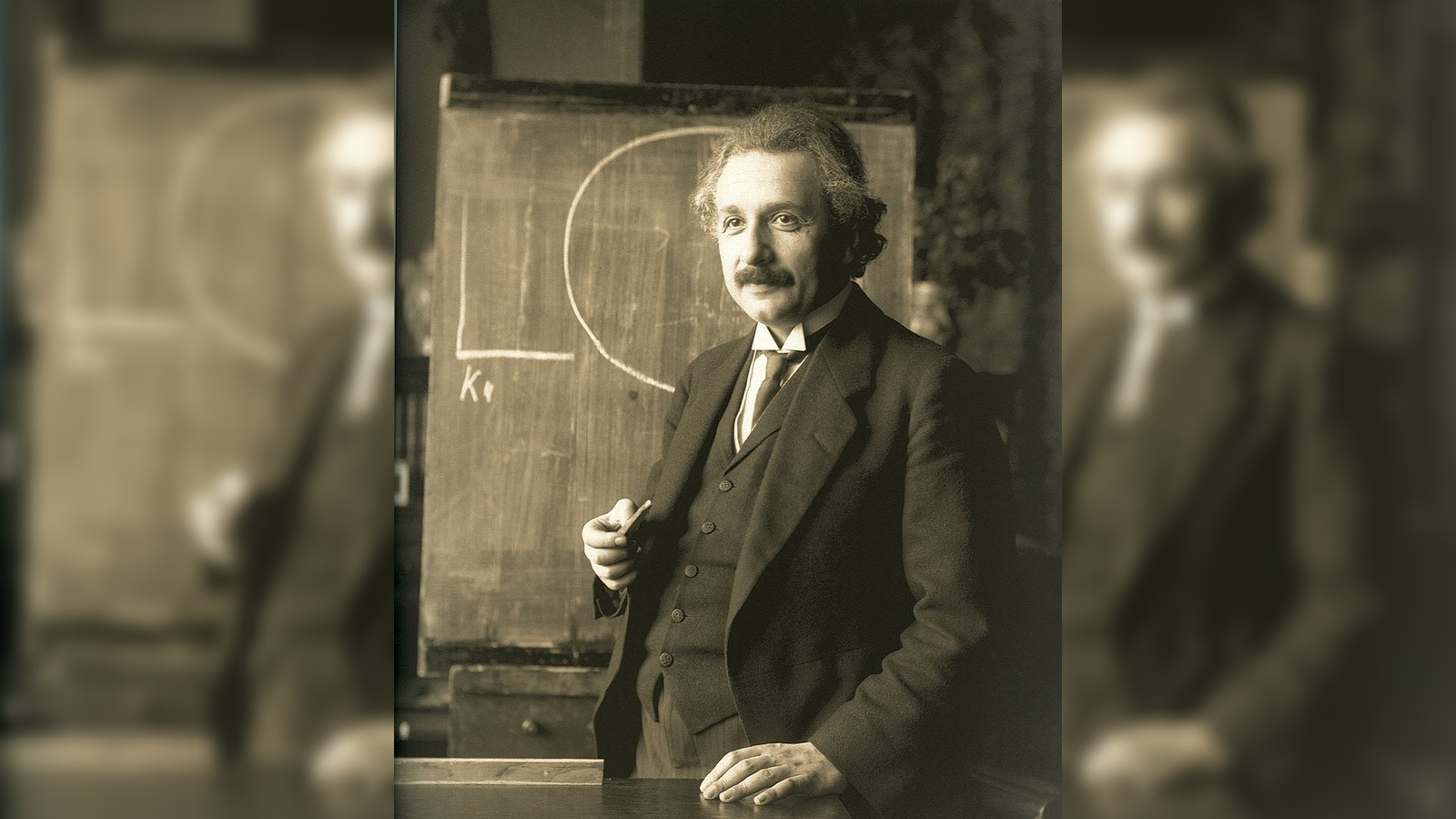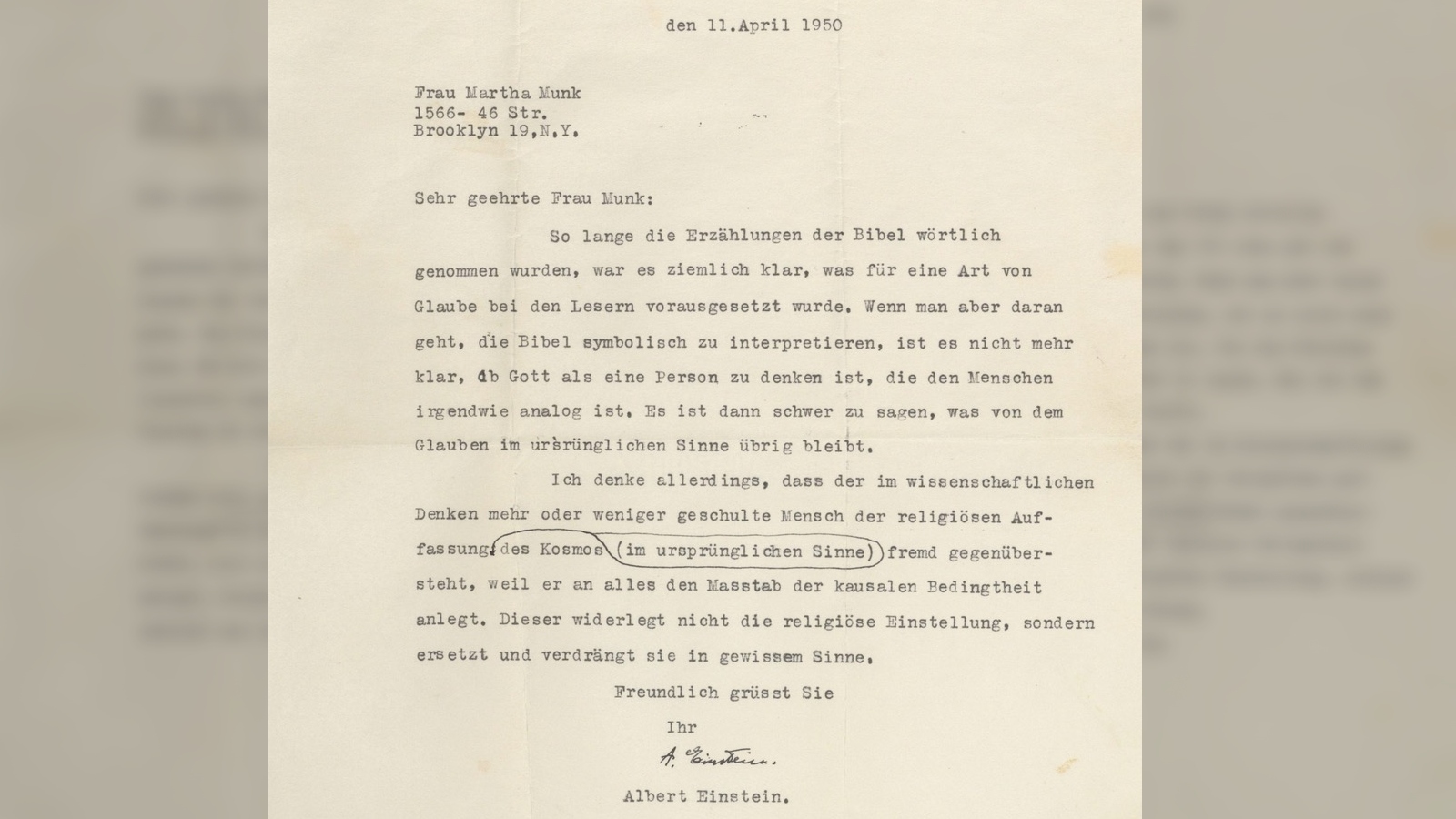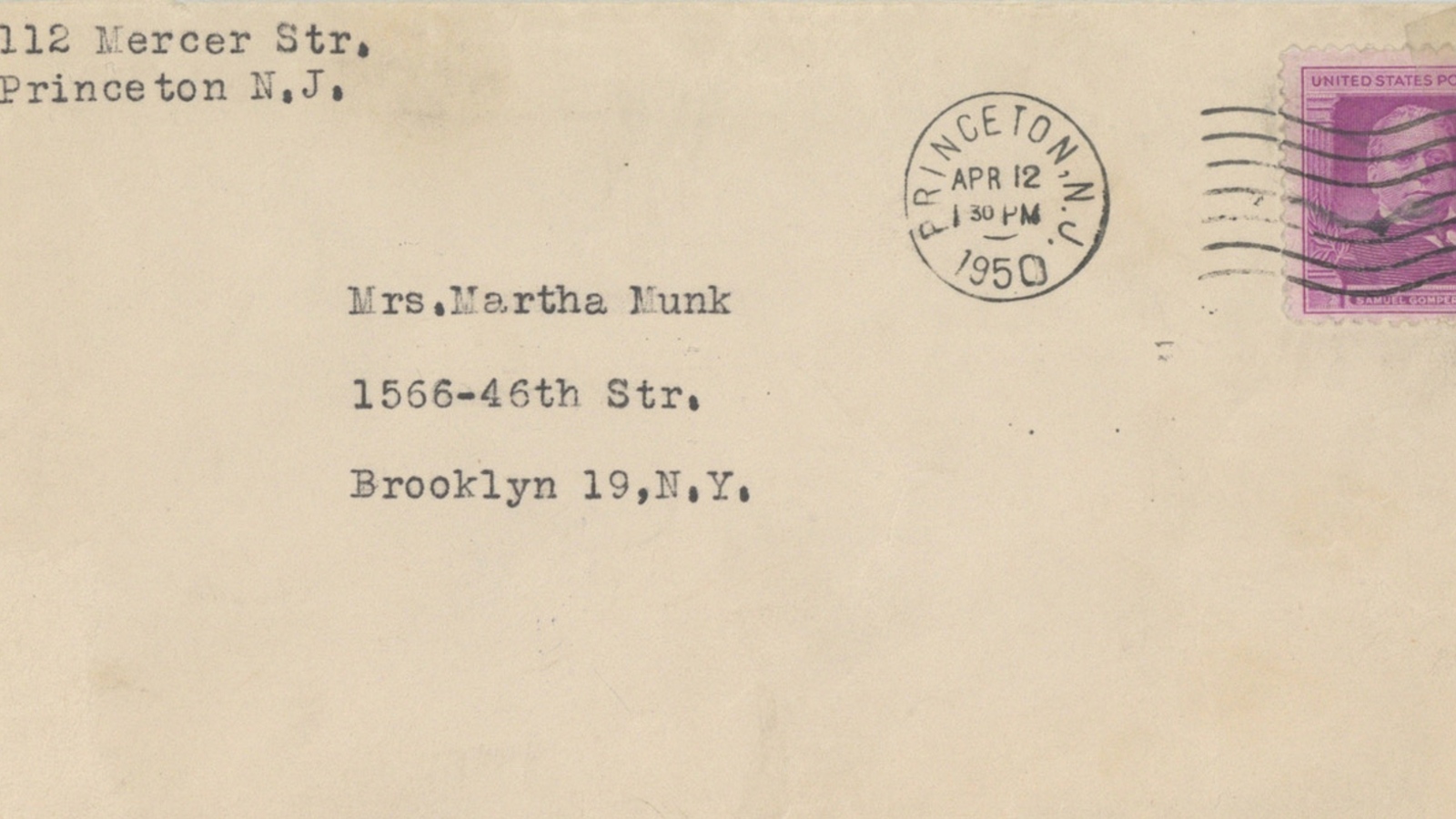Science 'supersedes' creationism, Einstein tells religious students in newly revealed letter
In the letter, the famous physicist also writes that God can be thought of as "analogous to humans."
Get the world’s most fascinating discoveries delivered straight to your inbox.
You are now subscribed
Your newsletter sign-up was successful
Want to add more newsletters?

Delivered Daily
Daily Newsletter
Sign up for the latest discoveries, groundbreaking research and fascinating breakthroughs that impact you and the wider world direct to your inbox.

Once a week
Life's Little Mysteries
Feed your curiosity with an exclusive mystery every week, solved with science and delivered direct to your inbox before it's seen anywhere else.

Once a week
How It Works
Sign up to our free science & technology newsletter for your weekly fix of fascinating articles, quick quizzes, amazing images, and more

Delivered daily
Space.com Newsletter
Breaking space news, the latest updates on rocket launches, skywatching events and more!

Once a month
Watch This Space
Sign up to our monthly entertainment newsletter to keep up with all our coverage of the latest sci-fi and space movies, tv shows, games and books.

Once a week
Night Sky This Week
Discover this week's must-see night sky events, moon phases, and stunning astrophotos. Sign up for our skywatching newsletter and explore the universe with us!
Join the club
Get full access to premium articles, exclusive features and a growing list of member rewards.
An old Einstein letter, in which the famous physicist tells a religious studies teacher and her students that science "supersedes" religious creation and that God can be thought of as "analogous to humans," has been put up for sale for $125,000.
The typed letter, from April 11,1950, was sent by Einstein to Martha Munk — a rabbi's wife and religious studies teacher at an unnamed school or college in New York City. Munk, like Einstein, was forced to flee Nazi-occupied Germany during the Holocaust, according to The Raab Collection, the company facilitating the letter's sale. (The letter is written in German and has been translated to English.)
Munk had previously written to Einstein to ask him questions posed by her pupils. "On behalf of the students of a series of lectures on religion, I would like to ask you whether you think that it is possible for a modern scientist to reconcile the idea of the creation of the world by God, a higher power, with his scientific knowledge," Munk wrote in her initial letter sent earlier that year.
In response, Einstein wrote: "The person who is more or less trained in scientific thinking is alien to the religious creation (in the original sense) of the cosmos, because he applies the standard of causal conditionality to everything. This does not refute the religious attitude but, in a certain sense, replaces and supersedes it."
Related: 10 discoveries that prove Einstein was right about the universe — and 1 that proves him wrong
In the letter, Einstein also addressed his thoughts on how God might be interpreted: "As long as the stories in the Bible had been taken literally, it was obvious what kind of faith was expected from the readers. If you are however to interpret the Bible symbolically (metaphorically), it is not clear anymore whether God is in fact to be thought of as a person (and therefore not a monotheistic deity), which is somehow analogous to humans," Einstein wrote. "In that case, it is difficult to assess what remains of the faith in its original sense."
Einstein's views on religion are well known. The physicist was raised Jewish and maintained his association with Jewish people, despite not believing in the God depicted in the Torah. Einstein spent his life trying to explain how the universe was formed without divine influence.
Get the world’s most fascinating discoveries delivered straight to your inbox.
In 2018, a lengthy missive penned by the German scientist in 1954, known as "Einstein's God letter," was auctioned for $2.9 million. In this document, the physicist detailed how he had not believed biblical stories in his youth and how this had freed him to a "fanatic orgy of free-thinking." Einstein also noted that he instead believed in Spinoza's God — an amorphous, impersonal god responsible for the orderliness of the universe that was first proposed by the 17th-century Jewish Dutch philosopher Baruch Spinoza, according to Christie's, which facilitated the auction. In the letter he also wrote: "The word God is for me nothing but the expression and product of human weakness."
Other letters from Einstein have also fetched a high price. In May 2022, one of his handwritten letters containing his famous E=mc2 equation sold for $1.2 million.
The new letter adds further insight into Einstein's views on religion.
"Not only was the letter written by Albert Einstein, one of the great figures and scientists of all time, it speaks to the ongoing, powerful debate between science and religion," Nathan Raab, principal of The Raab Collection, told Live Science in an email. "It's beyond exciting to get a glimpse of his personal thoughts on such an important issue."

Harry is a U.K.-based senior staff writer at Live Science. He studied marine biology at the University of Exeter before training to become a journalist. He covers a wide range of topics including space exploration, planetary science, space weather, climate change, animal behavior and paleontology. His recent work on the solar maximum won "best space submission" at the 2024 Aerospace Media Awards and was shortlisted in the "top scoop" category at the NCTJ Awards for Excellence in 2023. He also writes Live Science's weekly Earth from space series.
 Live Science Plus
Live Science Plus













